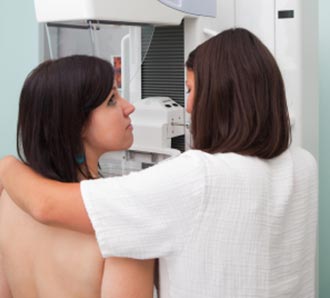If you have been injured or someone you know has died due to a failure to diagnose cancer, you may have a medical malpractice case and also be entitled to compensation for medical bills, lost income, pain and suffering, and other losses. We are working with experienced failure to diagnose cancer medical malpractice lawyers in RI and MA, who charge no fee unless you receive a settlement or award. Feel free to call us toll free 24/7 or contact us online for a free (no obligation) case evaluation.

Have You Developed Cancer That Was Failed to be Diagnosed
by Your Doctor?
Call The Lawyers of d’Oliveira & Associates
Today for a Free Case Evaluation!
Why Are There Failure To Diagnose Cancer Medical Malpractice Cases?
The most crucial aspect of successfully battling cancer is early detection. Unfortunately, cancer symptoms can share the features and symptoms of other conditions. This is why proper testing by doctors is essential. Examinations such as the PSA test, mammograms and biopsies are common procedures used by medical professionals to detect different forms of cancer.
However, sometimes doctors fail to even order these crucial tests or perform the correct examination. Also there can be situations where the proper tests are ordered, but the radiologist misreads the film or the pathologist misreads the slide. This leads to a crucial delay in making the diagnosis, a diagnosis that needs to be made in a timely manner. Delay in diagnosing cancer can worsen the treatment or prognosis or can even be fatal.
What Is My Cancer Misdiagnoses Medical Malpractice Case Worth?
Depending on the seriousness of the error and injury you could be entitled to compensation for:
- Current and Future Medical Bills;
- Lost Wages;
- Loss of Future Earnings;
- Pain and Suffering;
- Wrongful Death;
Among Others.
The experienced cancer misdiagnoses medical malpractice lawyers that we work with can answer any questions that you may have regarding the value of your case.
What Are The Most Common Cancers That Are Misdiagnosed?
Breast Cancer
 The failure to diagnose breast cancer is usually because an examination or test was not completed at all or was done incorrectly. Symptoms of this condition include:
The failure to diagnose breast cancer is usually because an examination or test was not completed at all or was done incorrectly. Symptoms of this condition include:
- Lump in the breast;
- Swelling in the armpit;
- Pain or tenderness in the breast;
- Any change in the size, contour,
texture, or temperature of the breast; - A change in the nipple, such as a nipple
retraction, dimpling, itching,
a burning sensation, or ulceration; - Among others.
Early detection in these cases is crucial. Finding this cancer early on can be the difference between life and death.
Pancreatic Cancer
Pancreatic cancer has the highest patient death rate within the first year of diagnosis because of the disease’s failure to be recognized earlier. Symptoms of this condition include:
- Upper abdominal pain;
- Jaundice (characterized by yellowing of
the skin and whites of eyes, dark brown urine,
white- or clay-colored stools);
- Nausea;
- Itching;
- Digestion problems.
With this cancer, the upper abdominal pain typically results from a tumor present in the pancreas and pressing on surrounding organs and nerves. The nausea can be attributed to blockage of the digestive track, evident by vomiting and an inability to eat that can lead to malnutrition and unintended weight loss. The itchy skin symptom is a tough indicator because most people will often recognize it and try to self-help with the use of moisturizer. This cancer can often be misdiagnosed as indigestion, gastritis, and gall stones, all of which are much less severe than pancreatic cancer itself.
Lung Cancer
 Lung cancer is frequently overlooked as a diagnosis and also gets delayed in its diagnosis. It is in the top five ranking cancers that lead to misdiagnosis medical malpractice lawsuits. Symptoms of this condition include:
Lung cancer is frequently overlooked as a diagnosis and also gets delayed in its diagnosis. It is in the top five ranking cancers that lead to misdiagnosis medical malpractice lawsuits. Symptoms of this condition include:
- Coughing up blood;
- Wheezing;
- Repeated respiratory infections;
- Difficulty breathing.
These can all be warning signs of lung cancer and should be investigated further by a chest x-ray. Ultimately, these chest x-rays can be misinterpreted, or not followed up further with a subsequent CT scan. Typically, lung cancer can be mistaken with chronic obstructive pulmonary disease, bronchitis, asthma, emphysema, and pneumonia.
Brain Cancer
 Medical studies have indicated that brain cancers may be misdiagnosed as much as 30% of the time. Some symptoms of brain cancer may include:
Medical studies have indicated that brain cancers may be misdiagnosed as much as 30% of the time. Some symptoms of brain cancer may include:
- Headaches;
- Blurred vision;
- Memory loss;
- Dizziness;
- Double vision
- Facial paralysis;
- Among others.
Often times, this condition can be mistaken as a migraine, stroke, tension headache, head injury, seizure, or epilepsy. Being aware of both personal and family medical history can be important to diagnosing brain cancer. Furthermore, undergoing neurological exams and subsequent MRI and CT scans if necessary can provide more detailed information of a patient’s brain ailment.
Ovarian Cancer
Ovarian cancer is one of the leading causes of death from cancer among females. The prognosis of this cancer can be poor given that symptoms usually do not show up until the disease has significantly progressed, resulting in its detection in very advanced stages. The symptoms of ovarian cancer can often include:
- Bloating;
- Abdominal or pelvic pain;
- Constipation;
- Frequent urination.
This cancer can often be misdiagnosed as a urinary tract infection, irritable bowel syndrome, acid reflux, or stress.
Cervical Cancer
 Cervical cancer has become of increasing concern in recent years with the prevalence of human papillomavirus (HPV), but fortunately, prevention and detection has also become much easier and advanced over time. Some signs of cervical cancer may include:
Cervical cancer has become of increasing concern in recent years with the prevalence of human papillomavirus (HPV), but fortunately, prevention and detection has also become much easier and advanced over time. Some signs of cervical cancer may include:
- Painful urination;
- Pelvic pain;
- Vaginal bleeding;
- Unusual vaginal discharge;
- Pain during intercourse;
- Among others.
Often times, this condition may be misdiagnosed as a yeast infection, uterine cancer, or cervical polyps. To decrease your risk of developing cervical cancer and chances of detecting the disease early on, be sure to get physicals at which you should provide your personal and family medical history, get routine pap smear tests, and follow up with pelvic examinations or other tests if necessary.
Colon Cancer
Colon cancer is typically found through a procedure known as a colonoscopy, recommended especially for individuals over 50 years of age. Delay in treatment or misdiagnosis of this disease can result from a failure to perform a colonoscopy or a failure to order the procedure for patients showing risk factors that indicate a need for the screening. Some symptoms of colon cancer may include:
- Increasingly worse constipation over time;
- Blood in stool;
- A loss of appetite;
- Weight loss;
- Nausea and/or vomiting;
- Among others.
Most often, this condition is mistaken for irritable bowel syndrome or hemorrhoids. Often times, patients do not seek treatment for these embarrassing symptoms until the cancer has progressed substantially; individuals should be keeping up with their healthcare visits and make sure their medical records are up to date.
Prostate Cancer
 Prostate cancer is one of the most frequently occurring types of cancer among males and is a leading cause of cancer deaths. Some warning signs possibly indicating this condition are:
Prostate cancer is one of the most frequently occurring types of cancer among males and is a leading cause of cancer deaths. Some warning signs possibly indicating this condition are:
- Weak or interrupted urine flow;
- Frequent urination (particularly at night);
- Trouble urinating;
- Pain or burning sensations during urination;
- The presence of blood in urine or semen;
- Painful ejaculation;
- Persistent pain in the back, hips, and/or pelvis;
- Among others.
Symptoms can lead to a delay in diagnosis or a missed diagnosis because they are rarely present during the early stage of the disease. Additionally, they may be misinterpreted as a condition known as benign prostate hyperplasia (enlarged prostate gland), prostatitis (inflammation of the prostate), a urinary tract infection, cystitis (inflammation of the bladder), or urethral stricture (abnormal narrowing of the urethra).
Why Contact Us?
 If you have suffered from a doctor’s failure to diagnosis cancer, you deserve to be compensated. You may be entitled to compensation for medical bills, lost income, pain and suffering and other losses. Our firm is working with some experienced medical malpractice lawyers in Rhode Island and Massachusetts and there is no fee until you receive compensation. Contact us toll free 24/7 or contact us online for a free (no obligation) case evaluation.
If you have suffered from a doctor’s failure to diagnosis cancer, you deserve to be compensated. You may be entitled to compensation for medical bills, lost income, pain and suffering and other losses. Our firm is working with some experienced medical malpractice lawyers in Rhode Island and Massachusetts and there is no fee until you receive compensation. Contact us toll free 24/7 or contact us online for a free (no obligation) case evaluation.
